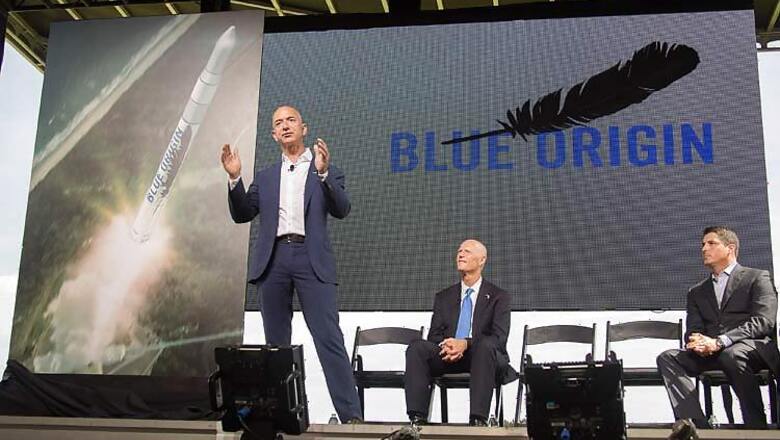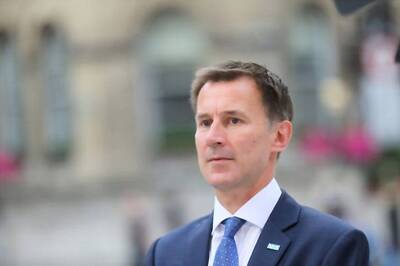
views
Cape Canaveral: Amazon founder Jeff Bezos said on Tuesday his space transportation company, Blue Origin, plans about two more years of test flights before it will offer rides to passengers.
On Monday, Blue Origin successfully landed a suborbital rocket back at its launch site, a key step in its drive to make reusable rockets, the company said.
“This flight retired a lot of risk and validated of lot of the elements of the design,” Bezos, who founded Amazon.com Inc and owns the Washington Post newspaper, said in an interview.
Being able to refly a rocket will slash launch costs, a game-changer for the space industry, Bezos said.
“When you lower the cost of access to space very significantly you will change the markets, you will change what’s possible,” he said.
About two more years of test flights are planned before people will ride on the New Shepard spacecraft, Bezos said.
The vehicles are designed to carry six passengers about 62 miles (100 km) above Earth, breaching the boundary between the atmosphere and space. “We’ll enter into commercial operations when we’re ready. In my view, if you can think of another test to do, you do it,” Bezos said.
A New Shepard rocket blasted off from Blue Origin’s West Texas launch site at 12:21 p.m. CST (1821 GMT) on Monday, reached a suborbital altitude of 62 miles (100 km) and landed back at the launch site eight minutes later.
In suborbital spaceflight, rockets are not travelling fast enough to reach the speed required to counter the pull of Earth's gravity, so they re-enter the atmosphere like a ballistic missile.
Another New Shepard rocket failed its first landing attempt in April due to a hydraulic system problem. The redesigned system now includes a backup second pump.
Attempts by fellow billionaire entrepreneur Elon Musk's rival rocket company, Space Exploration Technologies (SpaceX), to return the first stage of a Falcon 9 rocket have been unsuccessful so far.
Blue Origin also is developing a rocket engine in partnership with United Launch Alliance (ULA), a joint venture of Lockheed Martin Corp and Boeing Co, to replace Russian-made RD-180 engines used on ULA’s Atlas 5 boosters.
Congress last year banned the use of the RD-180 engines for military missions to punish Russia for its annexation of the Crimea region of Ukraine.




















Comments
0 comment